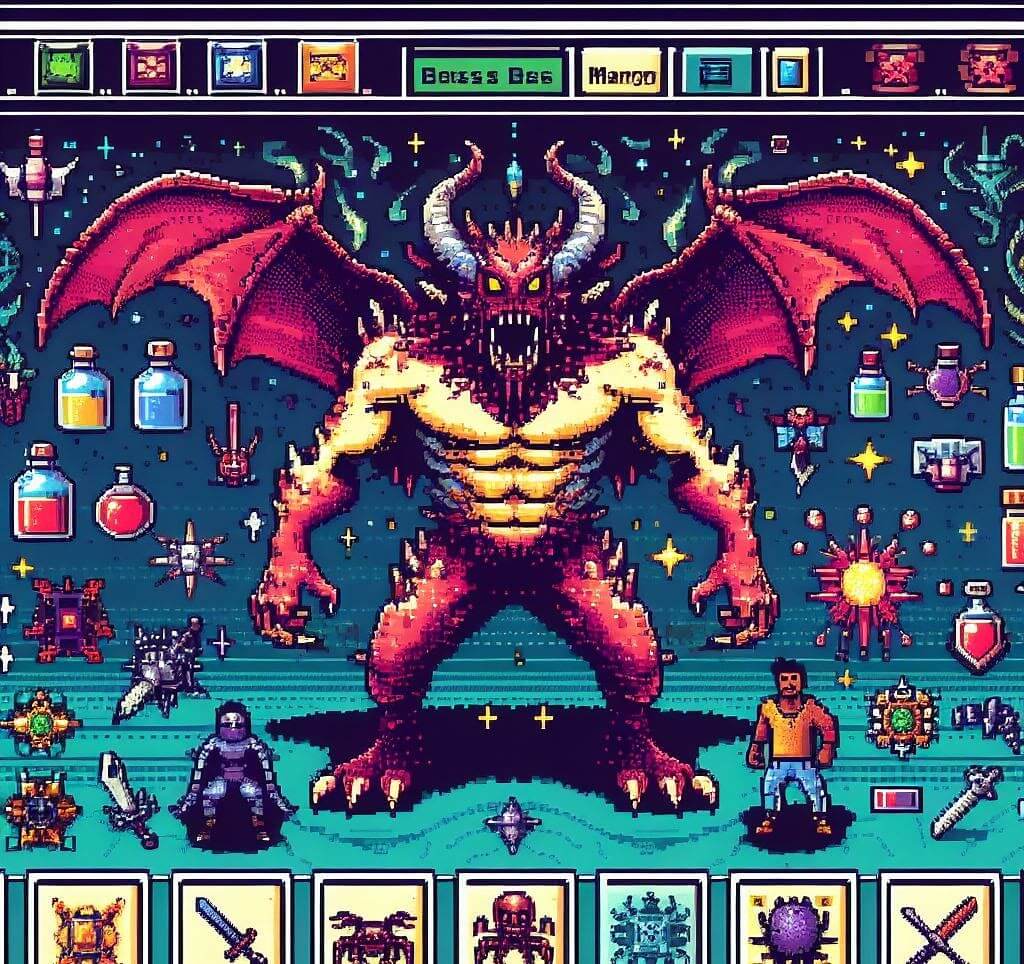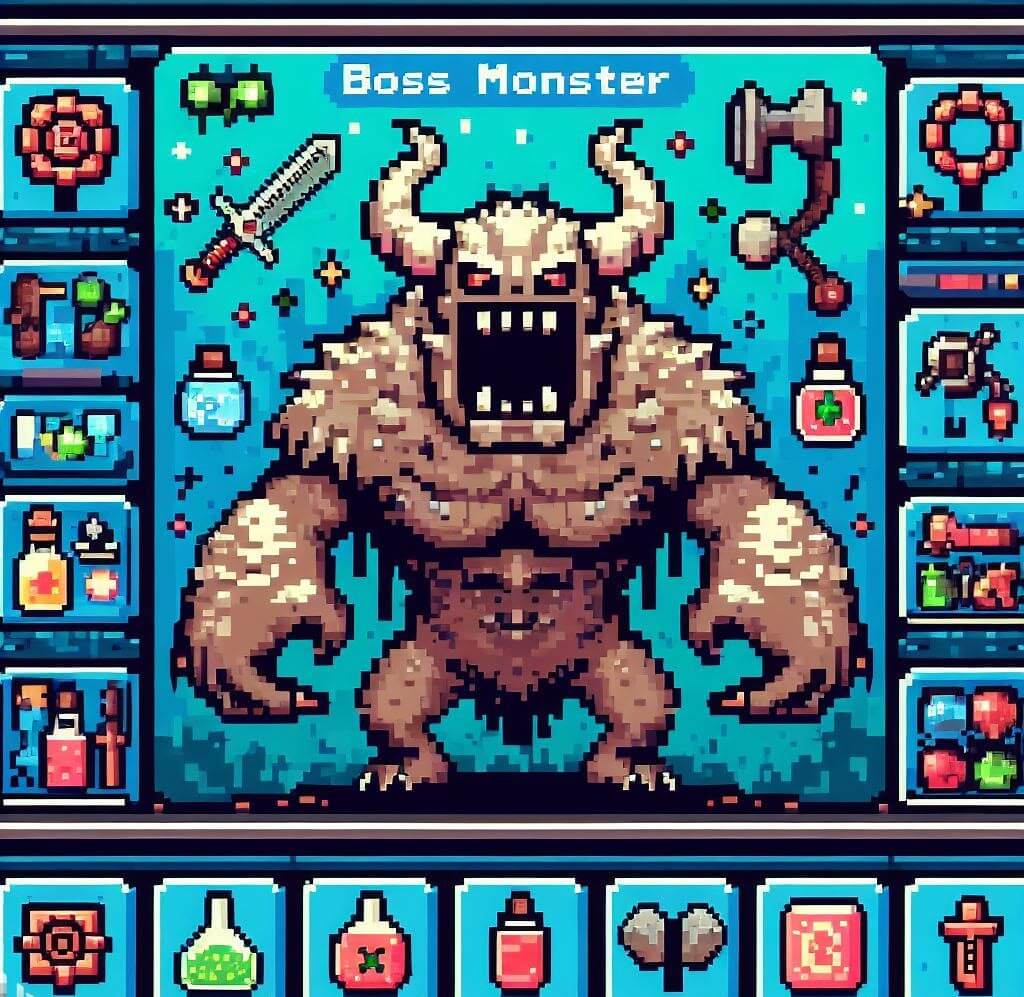The key to mastering Digital Boss Monster lays in understanding its core mechanics. Each player begins the game by selecting one Boss Monster from among the options, with each of these boss monsters hosting distinct abilities that mesh directly and extensively with your overall game strategy.
A variety of room and spell cards are then drawn, which are used to design and build a deadly dungeon. This dungeon is conceptualized to attract adventurers and, ultimately, to defeat them by making use of the powers and abilities detailed on these cards. The adventurers themselves, aren’t idle, and their successful journey through your dungeon inflicts wounds on your Boss Monster.
Succeeding in the Digital Boss Monster universe requires an intricate balance of points. You are tasked with accumulating ten souls before any of your opponents manage to achieve the same, with each defeated adventurer translating into a single soul for your collection. However, this is offset by a wound system, with wounds inflicted on your Boss Monster by adventurers who successfully navigate your dungeon and reach the Boss at its end.
 Understanding this dynamic, this tandem between dealing damage and receiving wounds, is pivotal to mastering Digital Boss Monster. It isn’t simply about collecting souls or dealing wounds; it’s about mindful gameplay where you anticipate, strategize, and react in real time to maintain the balance between luring, trapping, and defeating adventurers without leaving your Boss Monster vulnerable to significant wounding. You also need to be aware of the opponent’s strategies, adjusting accordingly to ensure that you remain a step ahead in this race for souls. This intricate balance between offensive and defensive gameplay helps create a level of complexity that enhances the strategic richness of the Digital Boss Monster world.
Understanding this dynamic, this tandem between dealing damage and receiving wounds, is pivotal to mastering Digital Boss Monster. It isn’t simply about collecting souls or dealing wounds; it’s about mindful gameplay where you anticipate, strategize, and react in real time to maintain the balance between luring, trapping, and defeating adventurers without leaving your Boss Monster vulnerable to significant wounding. You also need to be aware of the opponent’s strategies, adjusting accordingly to ensure that you remain a step ahead in this race for souls. This intricate balance between offensive and defensive gameplay helps create a level of complexity that enhances the strategic richness of the Digital Boss Monster world.
Understanding the Game Mechanics
The act of selecting your Boss Monster is a nuanced strategy in itself. The right choice can significantly enhance your prospects for victory, lending a vital edge to your game. Each Boss Monster comes with a unique set of abilities predetermined to augment your gameplay in distinctive ways. Thus, it should be understood that your Boss Monster selection isn’t arbitrary; it is, in fact, defining your strategy and influencing your approach to the game.
For those who prefer aggressive gameplay, certain Boss Monsters such as Zyzzyx can prove to be an optimal choice. Zyzzyx’s defining characteristic is its powers of room destruction, a feature that, if used correctly, can drastically disrupt opponents’ strategies, giving you an upper hand.
For players who veer towards a more nuanced, strategic style of play, Epolitus stands as an appealing option. Offering the capacity to adjust the layout of your dungeon in each round.
Given these diverse options, it becomes crucial to align your Boss Monster choice with your preferred style of play and strategic intentions. Your Boss Monster is your avatar in the game, representing your tactics, style, and strategic instincts. It functions as your primary tool to battle your opponents, simultaneously serving as a reflection of your approach to the game. Carefully analyze each Boss Monster’s individual abilities and consider how these can complement your tactics before making your selection. This decision could potentially determine not just how you play your game, but how your game plays itself out.
Choosing the Right Boss
Selecting the right Boss Monster can be a game-changing decision. Each Boss has unique abilities that can be leveraged for different play styles. For aggressive players, Zyzzyx is a great choice with its room destruction ability. Epolitus, on the other hand, allows for more strategic play, letting you adjust your dungeon layout each turn. Choose a boss that complements your preferred style of play.
Building Your Dungeon
While constructing the rooms in your dungeon, strategic diversity is key. Having a mixture of Monster Rooms and Trap Rooms creates unpredictability, which helps keep adversaries on their toes. The fundamental difference between Monster Rooms and Trap Rooms lies in their impact on your gameplay. Monster Rooms primarily aid in dealing regular damage to adventurers, thus chipping away at their vitality over time, whereas Trap Rooms are geared towards causing instantaneous effects the moment an adventurer steps in.
With that concept in mind, you must adjust your balance of room types according to the kind of adventurers likely to cross your dungeon’s threshold. For instance, if you’re up against an adventurer with a high health pool but slow in pace, your smart move would be to load up on Monster Rooms. The sustained damage over time will help bring these resilient enemies down faster.
On the other hand, if you’re dealing with speedy adventurers that have lower health levels, prioritizing Trap Rooms can be a wise move. Their immediate effects can incapacitate these adventurers before they speed through your dungeon, preserving your Boss Monster’s health.
Remember that the layout of your dungeon can shape the adventurers’ experience. Craft a room sequence that progressively intensifies, starting with more straightforward challenges and ramping up to your deadliest traps and monsters. This method provides not only a practical gameplay advantage but also gives a psychological edge: as adventurers witness their comrades falling to the escalating difficulties, their resolve can wane, making them easier to defeat.
Always be ready to adapt: if the game goes on and you see a shift in the types of adventurers venturing into your dungeon, don’t be afraid to adjust your room set-up utilizing different room cards drawn. In the world of Digital Boss Monster, adaptability is one of the most potent tools in any dungeon master’s toolbox.
Learning How to Use Spells
Learning to leverage spell cards can significantly shift the dynamics of a game in your favor. They offer a variety of abilities that can change the tide of a match, but making the most of them requires a careful blend of anticipation, timing, and strategy.
Offensive spells tend to act by disrupting your opponents, blocking their plans, weakening their dungeons, or thwarting the progress of their adventurers. For example, spells like ‘Freeze’ can halt adventurers in their tracks, buying you time to fortify your defenses or to edge closer to a win.
Defensive spells are primarily designed to safeguard your dungeon and bolster its functionalities. These spells can enhance the performance of your rooms, offer extra protection against threatening adventurers, and even temporarily boost your Boss Monster’s strength. Spells like ‘Fortify,’ for example, can provide temporary invulnerability for your Boss, offering a reprieve from incoming threats.
 Remember that spell cards in Digital Boss Monster are situational; possessing the perfect card at the wrong time is as good as useless. This is where the mastery lies: maintaining a balance between different types of spells in your hand and understanding when to use them strategically. It’s recommended to have an assortment of spell cards at your disposal, enabling you to react effectively to various in-game scenarios.
Remember that spell cards in Digital Boss Monster are situational; possessing the perfect card at the wrong time is as good as useless. This is where the mastery lies: maintaining a balance between different types of spells in your hand and understanding when to use them strategically. It’s recommended to have an assortment of spell cards at your disposal, enabling you to react effectively to various in-game scenarios.
Your spell deck could potentially save your Monster Boss from defeat, or quicken your victory. As you grow accustomed to the game, you’ll begin to feel more confident about which spells to hold onto, which to cast, and when to make your move. Some experienced players even develop unique spell-centric strategies, turning the tables of a game round after round, keeping their opponents constantly guessing and on the defensive. Hence, mastering spell cards turns you from a mere contender into a formidable force in Digital Boss Monster.
Effective Use of Heroes
Proper management of heroes is crucial in maximizing your potential for victory in Digital Boss Monster. While on one hand, heroes present a challenging threat, on the other, they can serve as a valuable source of soul points, making them an essential resource contributing to your game progression.
Regular Heroes, although easier to defeat, offer only one soul point. Epic Heroes, on the other hand, are harder to kill but reward you with two soul points. Therefore, it’s highly strategic to align your dungeon’s design with the level of challenge posed by these different types of heroes.
An effective dungeon is not just about ensnaring unsuspecting adventurers but also about efficiently destroying them before they reach your Boss Monster. This means that you must develop a tactical approach to lure the right kind of adventurers. This might include specific room configurations to attract particular heroes or using spells to redirect heroes to your dungeon.
Your rooms must then be effective in dealing with the attracted heroes. Evaluate each hero’s strengths and weaknesses and counter them with the appropriate room or spell. For instance, powerful Epic Heroes might be best drawn to your dungeon when you’ve assembled a series of high-damage rooms and have powerful spells at the ready.
Remember, every hero that reaches your boss inflicts a wound, and when your Boss Monster accumulates five wounds, you’re out of the game. So while it’s vital to attract heroes for their soul points, it’s equally important to ensure that your dungeon is solid enough to withstand their strength. The right balance between lure and destruction is key.
The handling of heroes in Digital Boss Monster requires a delicate equilibrium between risk and reward. Play it too safe, and you may find yourself left behind in the soul count. But if you get too aggressive without proper planning, you may get overwhelmed by powerful heroes. The correct strategy blends attrition with opportunity, positioning you, the player, as the true hero of the game.